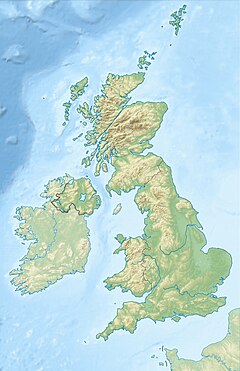Half-Mile Telescope
 The Half-Mile Telescope in May 1977: 2 fixed dishes in the foreground and 2 moveable ones in the distance (just in front of the 2 larger and darker dishes of the One-Mile Telescope) | |
| Part of | Mullard Radio Astronomy Observatory |
|---|---|
| Location(s) | United Kingdom |
| Coordinates | 52°09′49″N 0°02′08″E / 52.1637°N 0.0355°E |
| Organization | Mullard Radio Astronomy Observatory |
| Telescope style | radio interferometer |
| | |
The Half-Mile Telescope was constructed in 1968 (2 aerials) at the Mullard Radio Astronomy Observatory with two more aerials being added in 1972, using donated dishes (total cost was £70,000). Two of the dishes are fixed, while two are moveable and share the One-Mile's rail track; to obtain information from the maximum number of different baselines, 30 days of observing were required. Observing frequency 1.4 GHz (21 cm wavelength), bandwidth 4 MHz. Used for Hydrogen Line studies of nearby galaxies and produced the first good radio maps of hydrogen distribution (as a function of its velocity), for M33 and M31 (also produced nearly 20 PhDs and 50 published papers). The telescope was operated by the Radio Astronomy Group of the Cambridge University.



